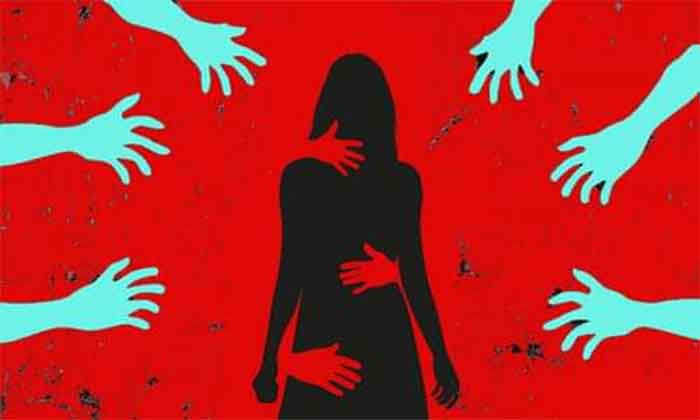
The rapist is not the stranger in the night.
Between pitaji ki maafi and pati ka haq most rapes in India are covered. A good portion of rapes in India happen with a known person rather than a stranger. The 2015 National Crime Record Bureau (NCRB) data shows that in 95 percent of all rape cases, the offender knew the victim.[1] Many rapes go unreported, because the offender is someone who is a ‘near and dear’ one or as in the case of god-men, is a very influential and trusted being. A very good number of unreported rapes are those that happen within marriages. But this form of rape is hard to socially accept or acknowledge and even harder to legally prove given that it isn’t even considered to be possible within Indian culture and law. Legal protection from marital rape is not available in India.
Before feminists and others, smash patriarchy, by demanding a death sentence or psychological councelling of the rapist, we first need to accept that rape as understood today is a very distorted form of what it is actually at the ground level. Instead of mock horror or disgust at terminologies like pitaji ki maafi, one must first make available to ourselves tools to recognize the varied guises of rape.
Rape is understood in the Bollywood fashion of stranger/ villain who forces himself on the woman till the hero steps in. This is a rather narrow definition of rape. It does not cover the entire ambit of rapes that occur in this country. One must first ask, can the hero be a rapist too? The hero could be that friendly uncle, the friendly friend, the awe-inspiring god-man or your husband. Rape does not belong only to that wild and un-tame territory of parking lots or desolate streets. Rape is very much a part of the family circle, the religious circle of sat-sanghs and ashrams, of office spaces, of political organizations, of familiar people. Rape does not belong to the unchartered territory.
Pati ka haq
Recognizing the domestication of rape within the four walls of the family or social circle, is the first step towards controlling or curbing its occurrence. Acknowledgment that the husband who forces himself on his wife without her consent is also rape, is the first step towards challenging it. The logic that ‘ye toh karna hi hai’ or it’s the husband’s right over the body of the wife has to be smashed. Sex is no logical culmination of the social contract of marriage, consent is.
The 16th December rape became much talked about. It was a talk that was long overdue. No longer in hushed tones, open condemnation in busy streets and public vehicles, it was a rape that got the nation talking, finally, about the atrocity of rape. But it got deflected into something that strangers did to the couple. It was easy to talk of the rape because it was some ruffians who had committed it under the effect of alcohol. It was easy to condemn it because it was the supposed ‘usual suspect’ of all crimes who had committed another. Not the bhadralok, not the family, not the office colleague. This is why this particular rape became an easy national issue to pick up, because it did not threaten the existing foreclosures of what was understood as rape. It did not threaten the patriarchal roots of society that are the reason for such crimes. Every patriarch was able to condemn it because the rapist became this convenient nuisance-to-the-society Other.
If people are serious about condemning rape they have to begin by recognizing the rapist within, in closer circles. Can we talk about harassment or rape that took place within one’s own circle of friends and family? Can we question ourselves whether we would ever harass, molest or rape someone known? Can we ask ourselves if we did or did not listen to our wife’s pleas or did we just go ahead with the act of sex because it was the done thing to do? Can we recognize the rapist within us? Can we recognize the rapist within our friends and family circle? Can we give them that tag? To smash patriarchy you need to stop let go of the Bollywood notion of the villain. Or is it more comfortable to think of the rapist as this distant being that you can airily denounce.
Pitaji ki maafi
Nowhere has this dilemma become clearer than in the recent angst felt by the Dera Sacha Sauda supporters. It took a brave battle of 15 years of two women who dared to stand up against the Dera Sacha Sauda chief Gurmeet Ram Rahim Singh. The High Court declared that the ‘Guru’ was guilty of rape. What has taken place in the days following that has shocked the nation. Some thirty people have lost their lives to the rampage caused by the supporters of the chief. There has been a huge loss of public property too. I am certain many of these people would have openly condemned the 16th December rape incident and even participated in its marches nation-wide.
The most appalling part is that the protestors, who came in two weeks before the verdict and suffered much hardship in the streets just for a glimpse of the guru, have hundreds of women amongst them. It is not the simple logic of sorority that one is asking for. But one does wonder how women specially could defend this rapist so hotly. But it is possible because they do not believe he committed the crime. Deep in his gufa he takes these sadhvis upon whom he forces himself, but the entire act is explained within a baffling logic called, pitaji ki maafi. Many women sadhvis who have faced this gruesome violation are perfectly happy with the logic too. Who’s complaining? Two very brave and self-aware women did. They are the hope for this patriarchal society.
To call out on rape one must know it has happened even if the rapist is your most trusted god-man. One must be self-aware that pitaji ki maafi is still rape. One must be strong enough to recognize that religion and religious men or women can also be entirely vile. The rapist needs to be shredded of its hideous cloak of that ‘dark’ villain that comes out from nowhere. The rapist is no distant Other but in fact is none other than the benign god-man who has held the trust of the family for years. To recognize rape one has to correctly identify the rapist.
A huge task cut out for feminists and also those who glibly talk about 16th December is this – locate the rapist within the familiar circle and help others do the same. It is easy to recognize evil when it’s outside the comfort zone, but the true challenge is to face up to it inside. It is a challenge the protesters and supporters of Ram Rahim are miserably failing at.
1 http://www.firstpost.com/india/ncrb-data-shows-95-rape-victims-in-india-known-to-offenders-3433136.html Saachi Sharma, May, 09 2017 19:36:17 IST
Debjanee Ganguly is a research scholar in JNU















































